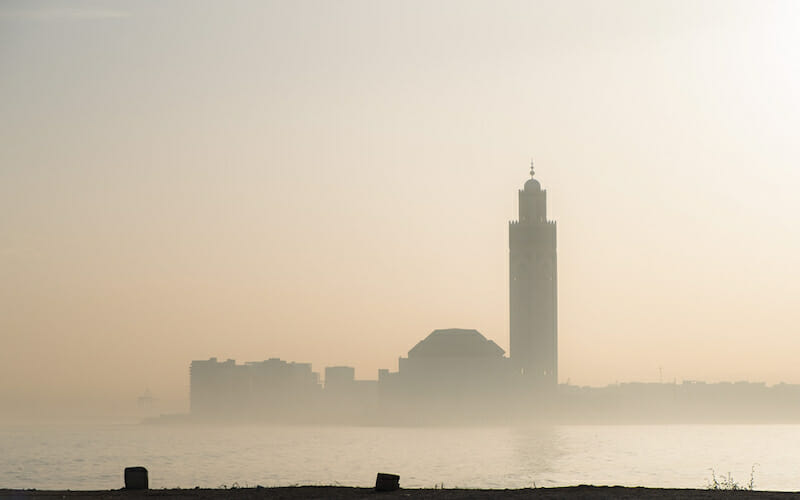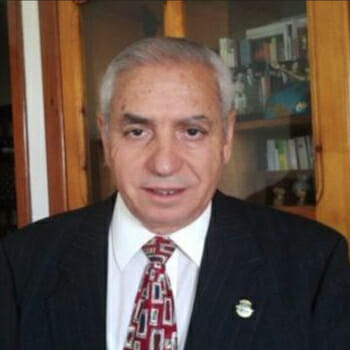
Casablanca: A Nightmarish City?
Foreigners visiting Morocco are not attracted to Casablanca which is baffling to common Moroccans who want to know why visitors do not like this modern and sophisticated city. Generally, they do not get any satisfactory explanations. In reality, foreigners seek to discover traditional Moroccan culture which Casablanca is unable to offer.
Locals believe it is their largest and most modern city. For visitors it is a noisy, dirty and chaotic city. It is riddled with pollution, heavy traffic, lack of transit transportation and the complications of modern life, but lacks the attractive traditional vestiges of a magnificent millennial city.
By comparison, Kuala Lumpur, the capital city of Malaysia, is very modern, is very clean, organized and very friendly. It has an excellent road network, an attractive and functional mass transit transportation system, a lot of greenery, many well-structured and designed malls, beautiful parks and countless affordable eating places. Most importantly it is safe during the day and night. The local government always makes sure that visitors are well treated, to ensure that they will return. Not far from Kuala Lumpur, is Singapore. This city-state has a mighty economy and visitors are treated well. They always get their money’s worth in accommodations, food, shopping, hospitality and quality.
What is wrong with Casablanca?
Everything! The city is basically two cities: the costal rich and affluent area and the surrounding area which is poor and unruly. The poor work during the day for the rich in their homes, businesses or factories and retire at night in their shanty towns to watch tasteless TV programs. They are underpaid, looked down upon and, often loathed by the rich.
Casablanca suffers from schizophrenia and double identity. The national government is more interested in security, bearing in mind, that in the past it was the hotbed of leftist militants and in 2003 it was rocked by Islamist terrorism originating from its own belt of poverty, Sidi Moumen’s bidonville. An excellent film was made by Nabil Ayouch of this particular event, Horses of God. The local government is often embroiled in partisan feuds and relegates city development to the back burner and often members initiate programs that might not be feasible or beneficial for the city in the long run, but support their own pockets and interests.
Hassan II Mosque
The roads are poor everywhere; full of potholes and the ugly sidewalks are used for car-parking that pushes pedestrians onto the roads where they are often victims of car accidents. Greenery is almost non-existent due to the blocks of cement which urban developers have installed on green spaces. During the day the city is suffocating and asthma is prevalent, especially among the young. Traveling during work days is almost impossible because of traffic jams. The city is gripped by this modern malady called inhuman capitalism: people want to make money fast at whatever price and in the process they lose their humanity, sense of compassion and the virtue of sharing which is not only inhumane but dangerous.
Banks, insurance companies, holdings, companies, factories and malls make money fast but spend no dirham on the social welfare of the city and its people. Worse, they refuse to pay one miserable dirham to the self-appointed car park guardians, they chase beggars or haggle over the daily wages of poor women cleaners.
Most of the big businesses of the country are headquartered in this city: banks, insurances, holdings, companies, factories, etc. where there is the largest port of the country. In a word, Casablanca is the capital of business but is also the capital of poverty and despair. In short, it is the capital of the Golden Triangleiii of Morocco where wealth is concentrated.
Aerial view of Casablanca
Recently some association, surely sponsored by the government, started a bizarre publicity campaign calling the city WeCasablanca and aiming apparently to highlight or improve the image of this big urban center but only by semantics, not through actions or deeds. However, this campaign does not seem to have viable objectives and feasible programs of intervention, it is merely a campaign of self-glorification, empty in meaning and useless in content.
Humphrey Bogarts’ Casablanca
For many Westerners, the city evokes romanticism as was represented in the Michael Curitz film Casablanca, released in 1942, in which a cynical American expatriate Humphrey Bogart runs a nightclub in Casablanca (Rick’s Café) during the early stages of WWII. Despite the pressure he constantly receives from the local authorities, Rick’s Café has become a kind of haven for refugees seeking to obtain illicit letters that will help them escape to America. But when Ilsa (Ingrid Bergman), a former lover of Rick’s, and her husband, show up to his cafe one day, Rick faces a tough challenge which will bring up unforeseen complications, heartbreak and ultimately an excruciating decision.
Humphrey Bogart says that he came to the city for the waters. Today the coastal waters are polluted and so is the air and the city pales in comparison to the one depicted in the movie. Today’s Casablanca is all about making fast money. So romantic Casablanca is very much a gross joke today, and the city’s image needs mending.
A way out
The city has the money but does not seem to have the will to restructure itself in order to become a bountiful and beautiful urban center of Morocco. It reminds one more of Cairo than of Paris.
How can things change: 1) Elect a new local government with a real development plan, selfless spirit and willingness to work hard to improve things. 2) Evaluate the city needs in infrastructure, housing, employment, welfare and put pressure on businesses to sponsor development programs. 3) The central government must come up with an emergency plan to help develop the city and control the local government. 4) Link various development programs to an external evaluation and audit scheme whose findings could be used to maintain or eliminate a program and keep a responsible official in place or fire him/her.
Casablanca is a great city with great people and great potential. It urgently needs great decision makers, managers and planners to enact reforms and not issue empty campaign messages of self-congratulation like WeCasablanca.
Will this materialize? Only time will tell.

